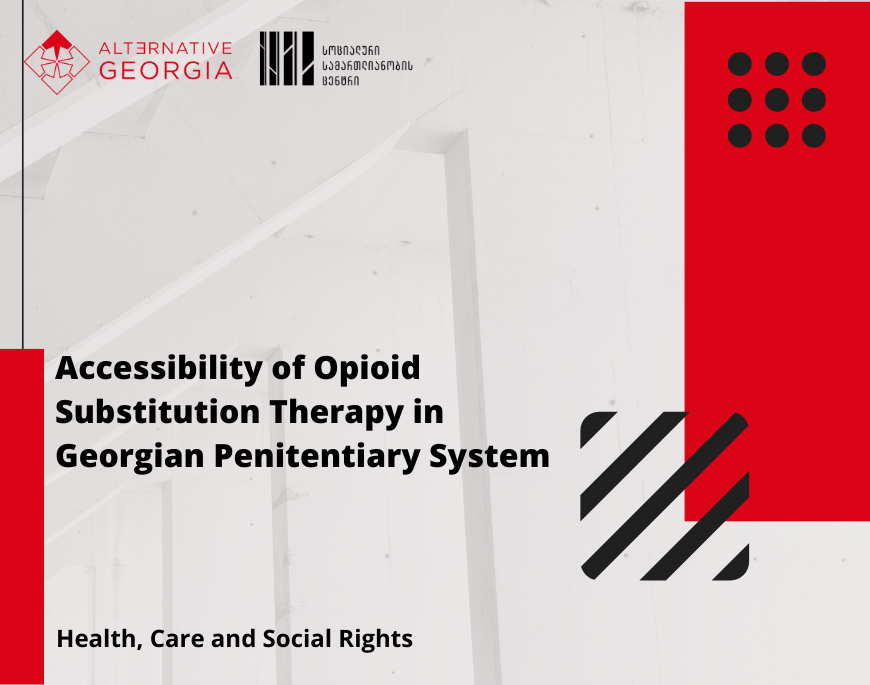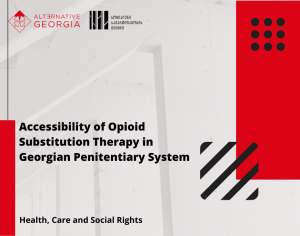

Advocating findings and recommendations of advocacy project titled Accessibility of Opioid Substitution Therapy in Georgian Penitentiary System has been completed. Project was funded under Center for Training and Consultancy (CTC) project Health, Care and Social Rights.
Implementing organizations: Social Justice Center (former EMC), Addiction Research Centre – Alternative Georgia
From March 2020 to April 2021, the Social justice Center and Alternative Georgia implemented the advocacy project, its main objective was to support implementation of the recommendations presented in the research titled Access to Opioid Substitution Therapy in Georgian Penitentiary System (the study has been conducted under the sponsorship of the Center for Training and Counsultancy with support from Bread for the World within the framework of the Health, Care and Social Rights Program.). More specifically, a sort of action plan is going to be elaborated where gradual expansion of treatment program areas in the penitentiary, actualization of this subject in public policy agenda, elaboration of relevant legal framework and action plan by a multisector working group and raising public awareness on OST through close cooperation with the community members are going to be stipulated.
Despite the difficult situation caused by the COVID-19 pandemic in the country, the project implementing organizations carried out the following activities planned within the advocacy project:
- Within the project was developed an action plan for a long-term substitution treatment in prisons (a practical guideline) to improve access to opioid substitution treatment (OST) in the Georgian penitentiary system.
- Communication was held with the Ministries of justice of Georgia and Ministry of Labor, Health and Social Defence of Georgia. The developed action plan was sent to the government office. Given that work on the document has been recently completed, the project team has not yet received specific feedback from the ministries regarding the document. However, the project team intends to continue to work actively on these issues outside the project, to communicate with state agencies, and to plan future steps regarding their feedback.
- The project team analyzed the existing legislative and regulatory framework. A short analytical document was published as part of this activity. The document is available at the following address: https://bit.ly/2Sfokmg
- In order to identify the needs of the activist group and the service beneficiaries, to raise awareness and strengthen their participation in the implementation of the program, closed working meetings were organized with community members. Information booklets were developed (online version: https://bit.ly/2Rq9NUE) and a documentary video was published, with the direct participation of the community member, based on the real story (the video is available at the following address: https://bit.ly/3gY0sxT)
The implementing organizations will continue to advocate for the introduction of long-term replacement treatment programs with state agencies.
They believe that active monitoring of legislative changes and participation in committee discussions is essential in the future. Also, the organizations believe that in addition to the introduction of the program in the penitentiary system, additional work is needed to improve the existing program and standards, as well as the existing regulations in the civil sector. In addition, it is especially important to advocate for the issue by working with community members, sharing their own practices and experiences, which further reveals the problems caused by the lack of long-term OST programs in the penitentiary system.